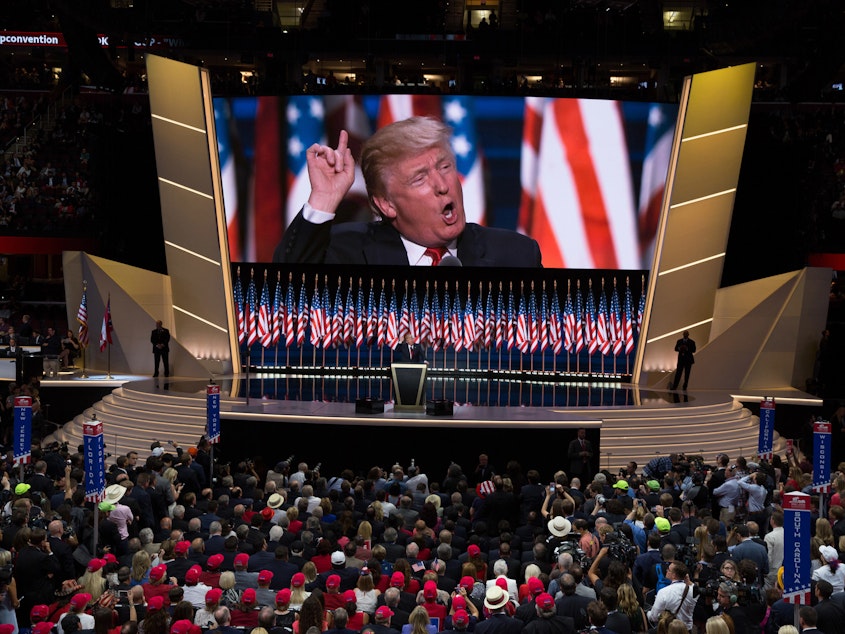GOP Officials Say They're Expecting 50,000 In Charlotte For Republican Convention

Republicans say they're moving ahead with plans to gather tens of thousands of people at their presidential nominating convention in North Carolina this summer — even as Democrats weigh their options for convening during the coronavirus pandemic.
In a statement Saturday marking 100 days to go before the 2020 Republican National Convention, the Republican National Committee said it is expecting nearly 50,000 attendees, including delegates and members of the media, at the convention scheduled for the week of Aug. 24 in Charlotte.
And in an op-ed published Friday for Fox Business, convention President and CEO Marcia Lee Kelly said Republicans are preparing to gather "thousands" to mark the formal renomination of President Trump and Vice President Pence to lead the party's 2020 ticket. She said organizers are working on details including the carpet and lighting at the convention.
Kelly said convention planners have "recognized that large-scale events would need to look different in light of COVID-19."
Kelly did not specify how the convention would be different because of the virus, though she told Fox that organizers would follow guidelines from federal, state and local authorities, including the Centers for Disease Control and Prevention. She noted that the RNC has hired Dr. Jeffrey W. Runge — a physician, former medical director for the U.S. Department of Homeland Security and former chairman of the National Highway Traffic Safety Administration — to oversee health and safety planning for the convention.
Sponsored
In an interview with NPR member station WFAE on Thursday, Republican National Committee Chairwoman Ronna McDaniel said the RNC is committed to holding the convention in Charlotte, while adding that it's possible attendees may wear masks or hold some events in smaller venues or outside.
City leaders in Charlotte have been divided over how to move forward with convention planning given the public health threat. Some city council members in the heavily Democratic community have expressed fears that gathering thousands of people in a relatively small area could prompt a surge in COVID-19 cases. The city remains under a stay-at-home order and has limited mass gatherings to no more than 10 people.
And some Republicans, including North Carolina Sen. Thom Tillis, have cast doubt on the feasibility of moving ahead as planned. Tillis has said that hosting the party's convention could be "very difficult" under these circumstances.
In an interview this week with the Washington Examiner, Trump reiterated his determination to hold the convention, saying, "I think we'll be in good shape by that time." However, the president said he was concerned about the possibility of North Carolina Gov. Roy Cooper, a Democrat, "playing politics" with the convention. Cooper is running for reelection this year and, like every governor, is charged with making decisions about how quickly to reopen the state during the pandemic.
Meanwhile, Democrats have delayed the Democratic National Convention, originally planned for the week of July 13 in Milwaukee, pushing it back to the week of Aug. 17 — one week prior to the RNC. Party leaders have been exploring options for safely holding an event where former Vice President Joe Biden is expected to be officially named the party's nominee amidst the pandemic.
Sponsored
Democrats have already taken steps to allow delegates to participate remotely and are exploring other contingency plans. House Speaker Nancy Pelosi, D-Calif., has tossed out suggestions that include shortening the convention or spacing out attendees in a "gigantic stadium."
In an interview with NPR, the Democratic convention's chief executive, Joe Solmonese, said it's too soon for organizers to know exactly how plans will need to be adjusted because of the virus.
"How many people we do that in front of, how many hotel rooms we occupy in the city of Milwaukee, how many buses and what sort of security infrastructure we end up having in terms of the uncertainty of the public health environment remains to be seen," Solmonese said. [Copyright 2020 NPR]



